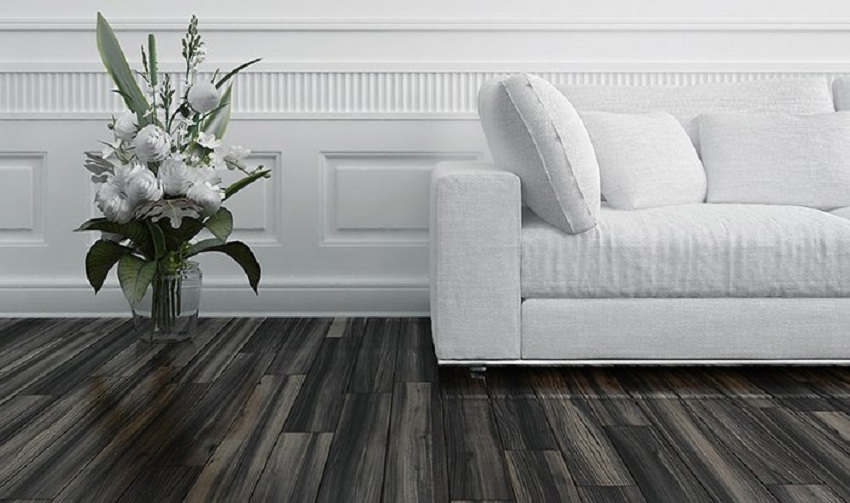Vinyl floors – a relatively young type of finishing materials, but with an impeccable reputation. The characteristics of vinyl combine advantages and lack of laminate, wood, and linoleum. It is able to withstand friction, heavy furniture and deluge, therefore it is used in the design of offices, commercial premises, medical facilities, etc.
Pros
1) Strength: Vinyl is chosen for its durability and durability. It is plastic, is not afraid of loads, heels, impacts and friction, it is not colored and does not crack. It is also important that the fragments damaged during the operation can be removed and replaced. In this respect, the tile material is more advantageous than the sheet material.
2) Moisture resistance: Luxury vinyl tiles are invulnerable to water, and the threat of leaks is minimal. This allows you to use a vinyl floor covering in the bathroom, toilet, and kitchen.
3) Easy maintenance: Serving such a floor is not difficult. It is enough to sweep up the garbage, and then wash it with a wet mop. To remove contaminants apply the appropriate detergent compositions.
4) Quick styling: Vinyl flooring is laid even on top of the old floor – concrete, wooden, tiled. The main thing is that there are no significant differences in height and protruding nails.
5) Durability: A competently assembled vinyl floor serves 10-20 years, the service life directly depends on the quality of the material, the way of installation and the characteristics of the room.
6) Aesthetics: Decorative properties of the material – at a height. Vinyl floors create exquisite beautiful, and by the richness of the color range and drawings they have no equal. Among the popular models are printed type tiles with wood decoration, marble, granite, terracotta and other materials with different shades, textures and textures.
7) Comfort: Regardless of the type of surface (it can be smooth or rough, matte or glossy), the vinyl seems soft and elastic. Walk on such a flooring is nice, in addition, they remain warm in the winter.
Cons
Despite the impressive list of advantages, vinyl flooring is not 100% perfect. Durable, affordable and beautiful, it still has certain drawbacks. And the most obvious of them relates to the impact on the environment. Plasticizers and stabilizers in the composition do not make vinyl floors environmentally friendly and 100% natural materials. Vinyl does not rot, and its natural destruction takes a lot of time. In addition, it is rarely recycled.
1) Heater: Thin vinyl tile almost always in additional insulation, which increases costs;
2) Softness: Vinyl can wear out badly if it is laid over a rough floor with defects. It is better to align the base to avoid scuffs and damage to the coating;
3) Toxicity: Materials in quartz vinyl tile sometimes give off toxic compounds. This is fraught with eye and respiratory irritation. The main degassing takes place immediately after the assembly of the flooring;
4) Color: Vinyl is subject to chemical pigmentation and is capable of changing color – for example, by reacting with rubber. Rugs, soles with time can trigger a chemical reaction, which will result in discoloration of individual parts of the floor. Poor-quality material is able to turn yellow under the influence of sunlight, pollution. To avoid such surprises, it is worth choosing high quality products.

